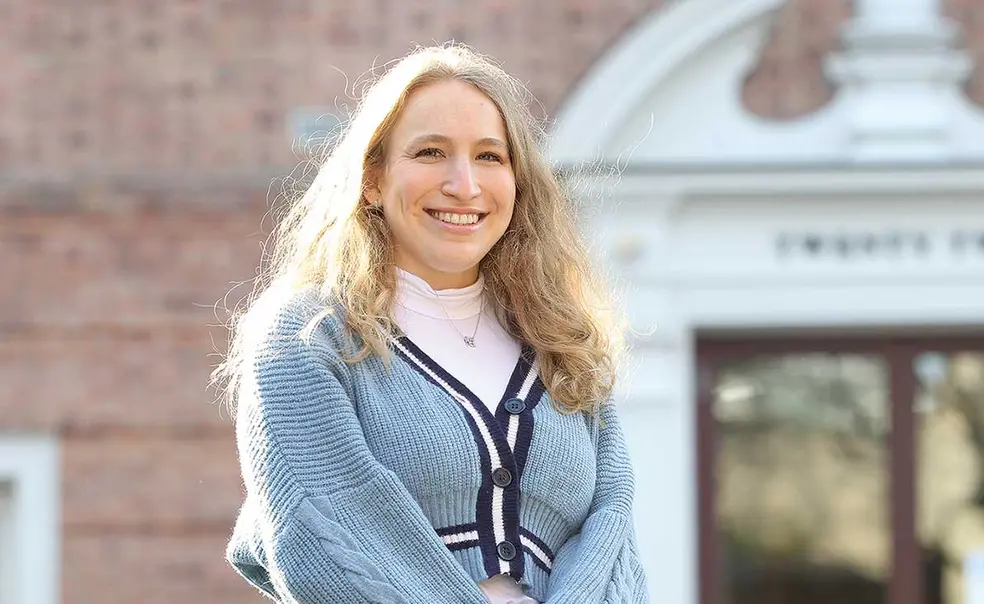As International Travel and Studies Are Disrupted, Scholars Adapt
Every September, the American Association of Rhodes Scholars holds a send-off for its newest class, replete with all of the pomp and circumstance one might expect from the oldest and most prestigious international scholarship in the land. In addition to the usual distinguished speakers and alumni hobnobbing, 2019’s three-day farewell included tickets to Hamilton. But in 2020, “Bon Voyage Weekend” took place over Zoom. Instead of being wined and dined, the new Rhodies received gift cards for the British food-delivery service Just Eat.
Even the best-laid plans — laid by some of the brightest, most forward-thinking members of the Class of 2020 — have gone awry this year. The COVID-19 pandemic has forced recipients of prestigious international fellowships to adjust expectations. While most fellowship programs accepted applications this fall, Princeton’s Fellowship Advising office continues to warn applicants that the future is highly uncertain.
“Flexibility will be key, as will be continued understanding of situations that lie beyond our control,” said Steven Gump, associate director of fellowship advising. “One constant, though, is that applicants to competitive fellowships and awards should always have alternative plans.” It’s a lesson that recent grads know well.
Sarah Hirschfield ’20 received a Gates Cambridge Scholarship last spring to pursue an M.Phil. in philosophy, but the pandemic forced Cambridge to move lectures online and employ social-distancing measures that Hirschfield believed would “dampen the liveliness of philosophical conversation.” She deferred her travels to the UK to spend the year working at the Princeton University Investment Co. (Princo), virtually attending Cambridge lectures and conducting preliminary research for her master’s program. She hopes that by next fall, social-distancing measures will have been relaxed enough for her to freely pursue the Gates Cambridge mission of building transnational relationships.
“I’m looking forward to meeting people of all different backgrounds and sharing in cultural experiences that you’re not going to be able to get from reading a book in your room alone,” explained Hirschfield. “The whole point is: Let’s get people together. Let’s have them living together, breaking bread together.”
Caleb Visser ’20, who last December received a Schwarzman Scholarship to study at Tsinghua University in Beijing, also deferred his fellowship — but not by choice. An Army ROTC graduate, Visser was obliged to begin four years of active-duty service. The Army typically grants service members permission to participate in select postgraduate fellowships while on active duty, yet it looked less favorably upon the Schwarzman Scholars Program this year after the program announced it would run fully remote. Visser learned just two weeks before virtual orientation weekend that his request to take part had been denied. Instead, he would report for active duty in southern Arizona.
“I was really excited about the prospect of getting to immerse myself in studying China’s growing influence in the world, and to do that in a community of global scholars,” said Visser, who said he nonetheless understands the Army’s decision. The Schwarzman program has allowed him to defer his scholarship for two years.
Despite travel restrictions and suboptimal learning conditions, most scholarship recipients are forging ahead with coursework and research projects. Leora Eisenberg ’20, who won both a Fulbright Scholarship and the Labouisse Fellowship to spend this year in northern Kazakhstan, researching how the Kazakh language is taught in Russian schools, now spends her days conducting Zoom interviews from an apartment in Philadelphia. (Her Fulbright program was canceled in November.)
Eisenberg said she is doing more interviews and speaking with a more dispersed network of interlocutors than she would have if embedded in a community in Kazakhstan. But she’s also had to stretch her stipend and finds it disorienting to spend her days in front of a computer screen, far from the site of her research. “I don’t feel very attached to Philly,” she explained. “I feel much more like I live in Kazakhstan, because that’s kind of where my head is.”
When asked when she thinks she might be able to reach Kazakhstan, she sighed.
“I ask myself that question every day.”










No responses yet